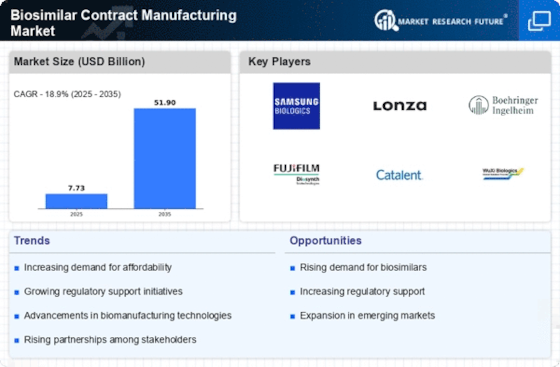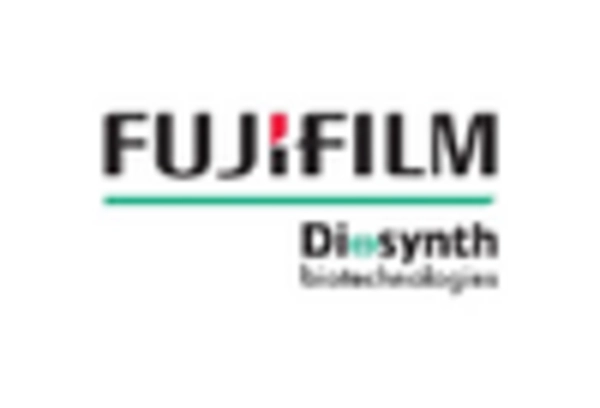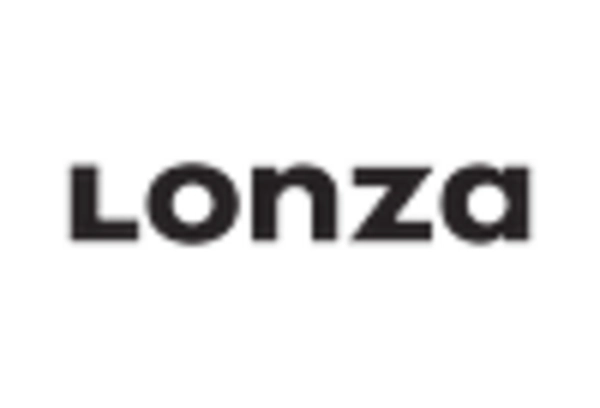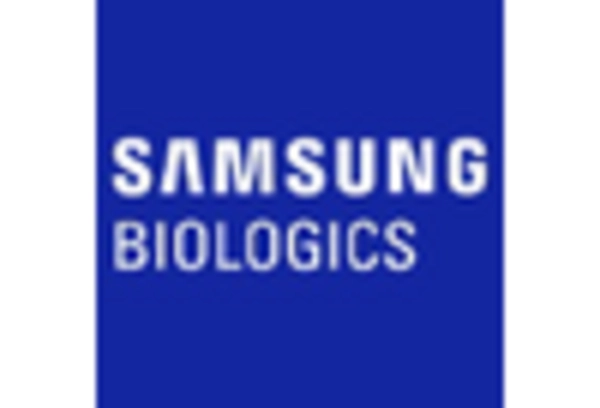Market Share
Biosimilar Contract Manufacturing Market Share Analysis
The Biosimilar Contract Manufacturing Market within complex pharmaceutical industry intricacies has strategic tactics applied to secure market share and gain a competitive advantage. A key strategy also revolves around cost efficiency and scalability. Contract manufacturing organizations (CMOs) offering biosimilar production services prioritize providing economical options without compromising on quality. Through improving the manufacturing process and leveraging economies of scale, such firms therefore become attractive partners for pharma manufacturers intending to bring biosimilars into the market at lower costs.
In addition, customer-centric strategies have remained instrumental in the Biosimilar Contract Manufacturing Market. Given that different pharmaceutical companies have different needs, CMOs design their offerings to address those specific requirements. Customization, ability to be adaptable in manufacturing and compliance to regulations are important aspects that lead to sales increase. This strategy ensures long-term collaborations as well as attracts new clients from whom they can get customized solutions specifically tailored for their own biosimilar products’ peculiarities.
Moreover, strategic partnerships and collaborations are essential for increasing market share in the Biosimilar Contract Manufacturing Market. Biotechnological firms, research institutions and drug manufacturers often join hands with CMOs in order to pool resources together, share knowledge and broaden market coverage. Their credibility is improved by associating with reputable partners because it guarantees them access to a larger pool of customers. By so doing, these companies can easily enter new markets by using the strong points of their collaborators thus enhancing their cumulative market share.
Furthermore, geographical expansion is an important aspect of market share positioning within the Biosimilar Contract Manufacturing Market. Thusly, CMOs focus on regions where growth for low price biosimilars is being witnessed. The creation of a strong presence in major geography allows CMOs to venture into emerging markets as well as benefit from rising demand for biosimilars locally produced ones since this gives room for savings on transportation expenses while ensuring faster response times thus reinforcing positions held by CMO’s.
Finally, technology and infrastructure investment is a key strategy employed by CMOs in the Biosimilar Contract Manufacturing Market. This means that these companies maintain their competitiveness by providing cutting-edge facilities and services as they keep pace with technological developments in bioprocessing and manufacturing technologies. Investments into current generation manufacturing sites, analytical capabilities, and quality control systems are aimed at not only improving performance but also enabling the CMO to be perceived as having superior biosimilar manufacturing solutions.
Most importantly, adherence to regulatory standards is crucial in the Biosimilar Contract Manufacturing Market. In order to address this issue of strict regulations for biosimilar production process, pharma firms prefer dealing with CMOs who adhere to global quality standards. A CMO that obtains all necessary certificates and complies with existing policies thereby becomes an essential partner within complex biosimilar development environment. By doing so, trust among customers is built and hence expansion of markets can be facilitated since different regions have varied requirements on regulation.


















Leave a Comment